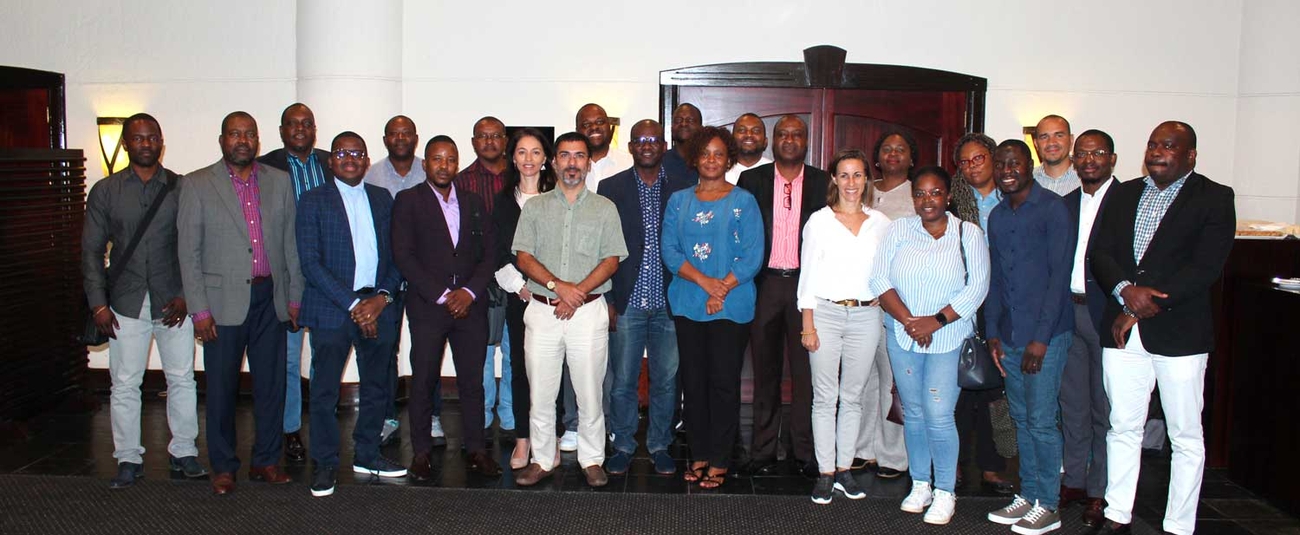advertisement
AfDB Support For Remote Digital Data Gathering Yielding Fruits

The African Development Bank (AfDB) has rolled out the Remote Appraisal, Supervision, Monitoring, and Evaluation (RASME) project in many African countries, Angola being the latest.
RASME is a set of real-time digital data-gathering tools and processes that enable the Bank, its clients, and development partners to better prepare projects, and progress reports, and evaluate impact openly and transparently.
The Bank Group’s Corporate IT department is helping to deploy RASME in partnership with the World Bank’s Geo-Enabling initiative for Monitoring and Supervision (GEMS) Team – Fragity, Conflict, and Violence (FCV), and KoBoToolbox foundation.
advertisement
“Ensuring open and transparent reporting of our development initiatives is central to our mission. RASME is an important enhancement of our capacity to do this,” said Dra Rossana Silva, head of the International Economic Cooperation Department at Angola’s Ministry of Finance, while launching the RASME Luanda, Angola’s capital city late November.
This follows a three-day training session in which African Development Bank Country Manager in Angola, Pietro Toigo, officially launched the initiative.
“I believe this project can significantly enhance the data collection that we use to assess the effectiveness of our development work here in Angola. Significantly, we are launching RASME in partnership with the Government of the Republic of Angola,” Toigo said.
RASME is operational in 14 countries across Africa. The scheme will enhance project-related data collection in inaccessible or remote areas, including those with security and logistical challenges, and thus improve the monitoring and evaluation of the Bank’s development projects. It is especially relevant in the context of the Covid-19 crisis, and in zones with instability, insecurity, and logistical concerns.
During the launch of RASME project in Gabon in late, October, Martine Mabiala, Advisor to Gabon’s Minister of Economy said:
“We are delighted with the launch of this initiative in Gabon, it will certainly be of great use to the project implementation units (PIU), especially in terms of the quality of data at entry and monitoring of projects.”
Robert Masumbue, the AfDB Gabon Country Manager said: “This is a great initiative that I strongly support. It is necessary to take advantage of this solution, especially in the context of Covid-19. I call on all participants to adopt it for better monitoring and evaluation of our projects.”
Rwanda too embraced the RASME initiative. It is the first East African country to do so and the seventh overall in the continent.
Gerald Mugabe, acting Director for External Finance in the Rwandan government, said:
“Government of Rwanda welcomes the new initiative and believes RASME will contribute to strengthening effectiveness as it will simplify project implementation, especially in terms of the quality and monitoring of projects.”
Aissa Sarr Touré, the African Development Bank’s Country Manager for Rwanda, praised the government for supporting the introduction of the tool. She urged participants to fully engage with the Bank’s implementing team so that the initiative can fully deliver effective monitoring and evaluation of projects.
RASME is currently being implemented in Gabon, Cameroon, Chad, the Democratic Republic of the Congo, the Central African Republic, and Mozambique.
RASME’s suite of tools is based on the KoBoToolbox platform, an open-source ICT solution developed by researchers affiliated with the Harvard Humanitarian Initiative. The tools are operational both online and offline and are thus useful in locations with limited telecommunications infrastructure.
KoBoToolbox can also validate and analyze data, which is stored on secured servers. Deployment of RASME is expected to be subsequently rolled out across Africa.
Dr. Patrick Vinck, KoboToolbox’s co-founder said: “We are very pleased to be partnering with AfDB’s Central Africa Regional Office and the World Bank’s GEMS Initiative in support of the African Development Bank’s development projects. We know that RASME will have a real impact on the ground, and we look forward to working with our partners on this project.”